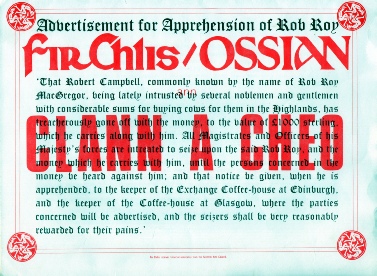

Honorary Fellow: Association For Scottish Literary Studies

“If we investigate only by physical and chemical means, we can only get physical and chemical answers.”
Clann a Cheo
Commissioned by Fir Chlis Theatre Company, Isle of Harris, 1980.
Director Mairead Ross.
Gaelic translations by Tormod Domhnallach.
Music, dance, poetry and song blended with drama to suit the capabilities of the new company.
Some years earlier I had the intention to write a play for Dundee Rep around the story of Rob Ruadh MacGriogair, but some unexpected changes in circumstances caused that project to be abandoned. Much of the research material then amassed was used to inform this play.
Clann A Cheo [Children of the Mist] uses the history of the persecuted Clann Griogair
as a short-
The story of Rob Ruadh MacGriogair's wife, Eilidh Mairi MacGriogair, has been much
overshadowed by the exploits of her famous husband. There has been very little historical
research into the verifiable facts of her life and the pen-
During her husband's outlawry the Duke of Montrose ordered his factor, Grahame of Killearn, to take troops and evict her from the family home at Craigrostan. That Eilidh Mairi was badly abused is not disputed. She possibly was raped. One account used a phrase in Latin to suggest more than rape was involved.
The play puts one psychologically-
It was a very ambitious project for the recently-
The production had a successful tour of the Western Isles as well as performances in Edinburgh and, I think, London.
The material of the basic script has all the ingredients for a Scottish Opera.